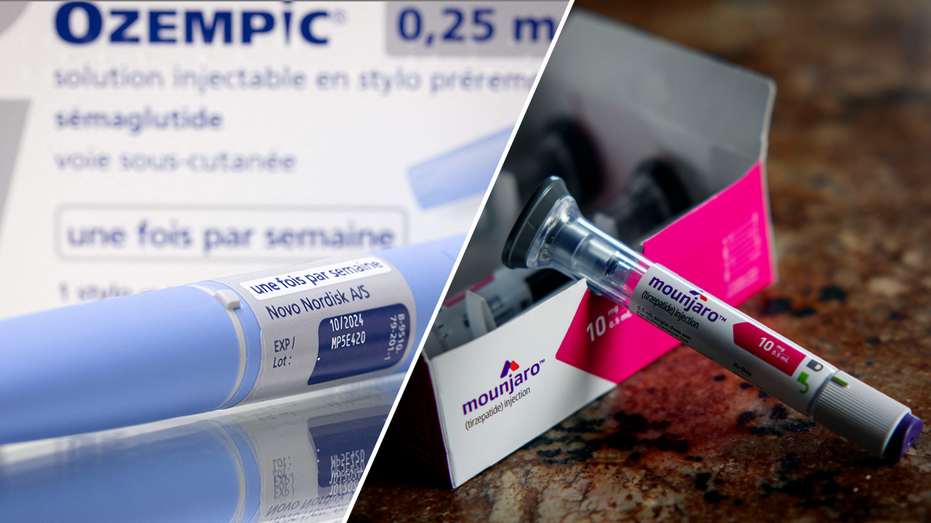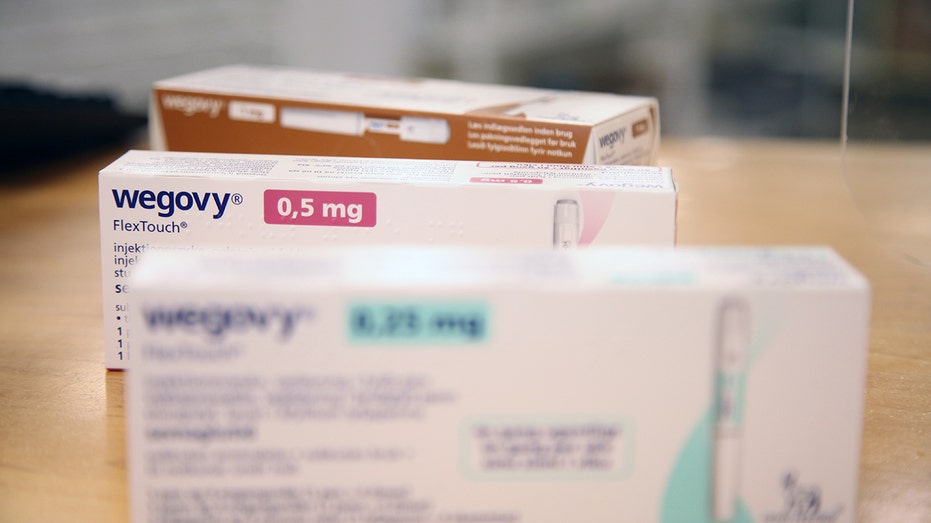FDA chief sounds alarm over sale of fake weight loss drugs circulating online
Compounded versions of the drugs are sold 'without proper controls,' Dr. Robert Califf said
Weight loss drugs will exceed $100B in annual sales by 2030: Barbara Ryan
Barbara Ryan Advisors founder Barbara Ryan discusses the future of the biotech sector on 'Making Money.'
GLP-1 agonist drugs are having their moment in the spotlight, but shortages brought on by increased demand are compelling some users to look for quick alternatives that have U.S. Food and Drug Administration (FDA) Commissioner Dr. Robert Califf a bit concerned.
Compounded versions of the drugs – which combine a medication with other ingredients thought to be safe for use – are sold "without proper controls to ensure they [consumers] get the right active drug," Califf told Reuters, but counterfeit versions of the products pose another problem.
"In the context of the total picture of illicit drugs being sold on the internet, it's almost certainly… much bigger than what we see," he said.
DIABETES DRUG TESTED FOR WEIGHT LOSS COULD BE GAME CHANGER

Ozempic (left) and Mounjaro (right) are approved to treat type 2 diabetes, but their weight loss effects have made them especially popular. The active ingredient in each medication has since been approved for weight loss, compelling manufacturers to (JOEL SAGET/AFP / Sandy Huffaker for The Washington Post via Getty Images / Getty Images)
The World Health Organization, according to the outlet, offered similar takes on the concerning uptick, saying the so-called drugs could potentially cause a toxic reaction due to being created in contaminated conditions.
They also likely lack efficacy.
Novo Nordisk's Ozempic, a semaglutide drug approved to treat type 2 diabetes, is additionally sold under the "Wegovy" label since being approved as an obesity treatment.
NOVO NORDISK'S WEGOVY REDUCES RISK OF SERIOUS HEART PROBLEMS BY 20%, STUDY SHOWS

"Wegovy," a drug approved to treat obesity, has the same active ingredient as Ozempic. (Steffen Trumpf/picture alliance via Getty Images) / Getty Images)
Eli Lilly's Mounjaro, the first-in-class GLP-1 and GIP agonist combination (tirzepatide) drug for type 2 diabetes, saw a similar relabeling after being approved for obesity treatment late last year. It is now additionally sold under the label "Zepbound."
The injectables, which suppress appetite and help the body respond to the insulin hormone more efficiently, are also occasionally prescribed off-label to help treat other endocrinological conditions that commonly involve the hormone or the body's resistance to it, including prediabetes, polycystic ovarian syndrome (PCOS), insulin resistance and metabolic syndrome.
According to clinical trials, these injectables have helped patients lose 15% to 20% of their body weight.
ELI LILLY BROADENS ACCESS TO WEIGHT LOSS DRUGS WITH NEW WEBSITE
America's weight loss obsession
FOX Business' Charles Payne, Gerri Willis and Lydia Hu react to young people using laxatives to lose weight on 'Making Money.'
Each drug has experienced longstanding shortages as demand has surpassed supplies, fueling the illicit market in addition to lining the pockets of compounding pharmacies.
According to Reuters report, the FDA sent warning letters to two online vendors for selling illicit versions of Wegovy and Zepbound earlier this month and fake versions of Ozempic have previously hospitalized some after they suffered from hypoglycemia.
GET FOX BUSINESS ON THE GO BY CLICKING HERE
Popular weight loss drugs see sharp price increases
Custom Care medical internist Dr. Frank Contacessa discusses popular weight loss drugs and shares his perspective on COVID boosters.























